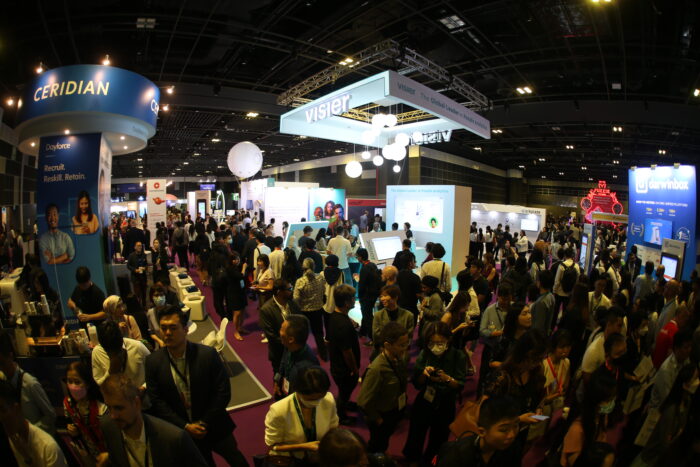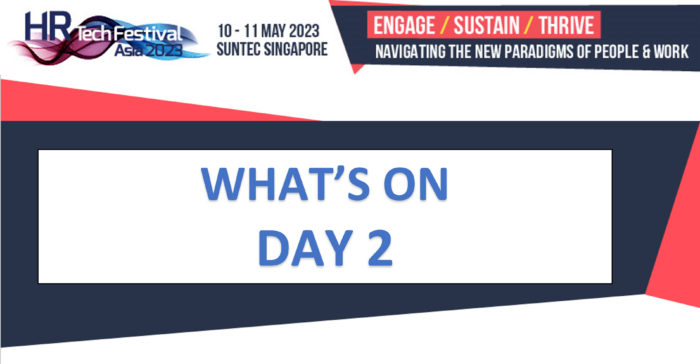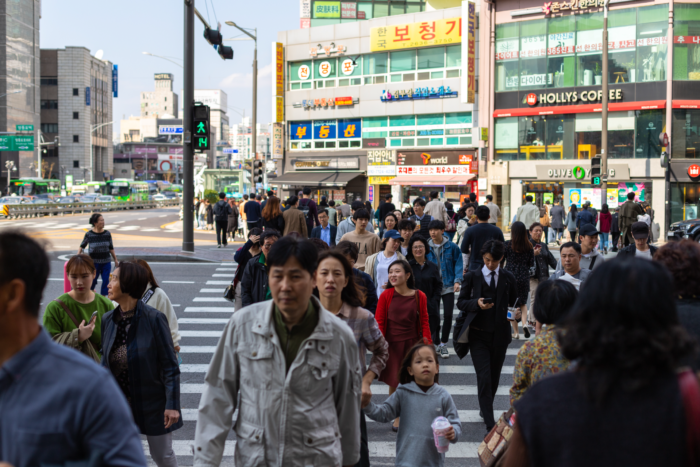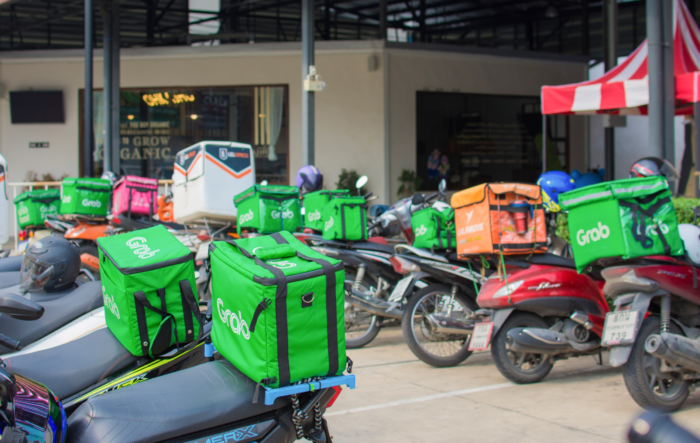Careers job candidates should aspire for in the age of AI

Amidst fears of AI taking over jobs, finding fulfilment and satisfaction is key to a successful career and life, says Elon Musk.
The metaverse can revolutionise workforce training, says Meta

The full potential of the metaverse will be realised within 10-15 years and will have a positive impact on the way people work, predicts Meta’s Nick Clegg.
Employers in Taiwan grapple with ageing workforce

As a result of declining birth rates, fewer young Taiwanese 15-29 are employed, while employees in other age ranges are on the rise.
HR Tech Festival Asia 2023: HR transformation in the future of work

With the evolution of the workplace, HR leaders must recognise and embrace both opportunities and challenges.
HR Tech Festival Asia 2023: What’s happening on Day 2

Day 2 of the HR Tech Festival Asia 2023 is jam-packed with presentations and innovations that will shape the way organisations work in 2023 and beyond.
Celebrating Asia’s top HR leaders and organisations

Winners of the HR Tech Festival Asia 2023 were recognised for setting the benchmark of excellence and innovation in the HR industry.
Minimum wage exemption offered to selected MSMEs in the Philippines

Only micro and sole proprietorship businesses in the Philippines that meet certain criteria can be exempted from implementing the minimum wage.
Improving mental health across workplaces in Queensland

A new health and safety code will support workplaces in creating mentally healthy environments and address psychological health risks.
South Korean firms develop ChatGPT misuse prevention guidelines

To prevent information leaks resulting from the misuse of ChatGPT, education campaigns have been launched to inform employees of potential risks.
New Zealand’s minimum wage sees historic increase

Over 223,000 employees in New Zealand will benefit from the increase in the minimum wage to NZ$22.70 (US$14.20), including those earning lower income.
Singapore to probe employers misclassifying employees

This is to prevent instances where employees may be terminated but rehired by employers looking to reduce costs, said the Ministry of Manpower.
Labour groups in the Philippines petition for wage hike

Calls for a living wage in Metro Manila have intensified as labour groups demand the minimum wage to be increased to PHP1,140 (US$21.01).
Male employees in Japan encouraged to prioritise family over work

Prime Minister Fumio Kishida has outlined potential measures to push for higher take-up of paternity leave among male employees in the country.
Australia addresses workforce skills and training needs

A bill has been passed to establish the permanent functions and governance arrangements for the newly established Jobs and Skills Australia agency.
Employees in Japan in line for largest pay raise in three decades

Organisations in Japan have heeded calls from the government to raise wages to help employees manage rising living costs.
South Korea considers revision of flexible work plan to suit employees

Many employees have opposed the Ministry of Employment and Labour’s proposal to increase the weekly maximum work hours to 69 hours.
Equality bill receives support in the Philippines

Government agencies have endorsed the Sogie equality bill, which includes provisions to protect against gender-based workplace discrimination.
Singapore considers re-employment support for retrenched employees

The scheme aims to ensure that jobseekers find jobs that most accurately match their skillset and offer the best growth opportunities.
Malaysia takes steps to protect gig workers’ welfare

Malaysia plans to include gig workers in a social security scheme and is considering specific legislation to safeguard their welfare.
More help on the way for employees in Singapore

Singapore is considering initiatives and schemes that will provide wide-ranging support and opportunities for employees in the country.
Adhere to 45-hour workweek, employers in Malaysia told

Urging compliance, Malaysia’s HR Minister has also called for better salaries to keep high-skilled employees in the country.
Employee union in the Philippines wants more financial aid

This comes after Senate employees in the Philippines successfully secure a P50,000 (US$906) inflation assistance to better cope with rising living costs.
Australia reforms disability services to foster inclusivity

Properly funded reforms and initiatives can provide greater choice and control to employees in Australia with disabilities.
More employees in Singapore working beyond retirement age

31% of Singapore residents aged 65 and above are employed, with the majority earning less than S$2,500 (US$1,885) monthly.
Is flexibility the solution for the future workplace?

Flexible working arrangements (FWAs) can help increase productivity and retain talent, but organisations need more support to implement them.
Singapore strengthens fair employment guidelines

Employers are encouraged to consider employees’ cultures, values, and beliefs in any activities, programmes or policies that are not work-related.
Employees in South Korea must pay more to support pension scheme

As South Korea’s population ages and more employees leave the workforce, pension reserves are predicted to deplete by 2055.
Casting a wider net: Acquiring the best talent beyond borders

Deel’s Karen Ng highlights why employers are going beyond their shores in search of the right talent and the role Deel is playing to support them.
Amendments to Malaysia’s Employment Act kick in

The amendments are largely based on the International Labour Organisation standards, which provide a framework for addressing labour issues.
Emergency regulation replaces job creation law in Indonesia

The law is amended to include a component for the formula used to determine minimum wages that take purchasing power into consideration.
